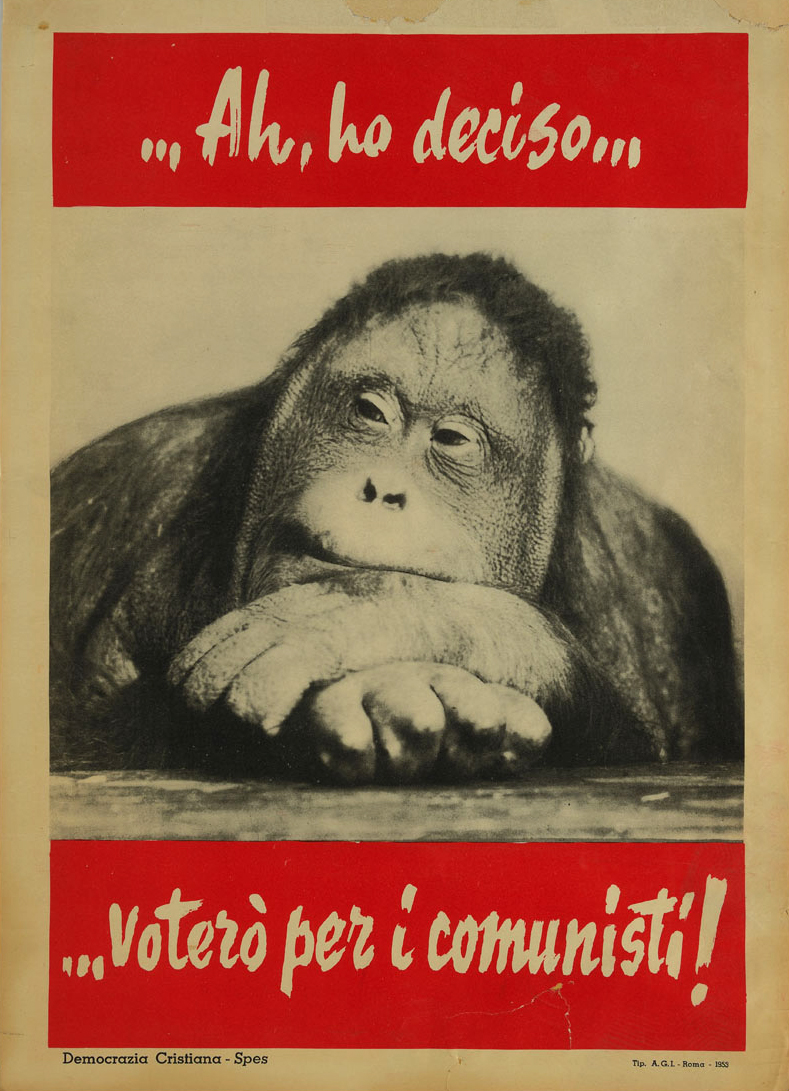Remember, we know how to address many of the world’s problems, including poverty, homelessness, and climate change.
But those with capital in society choose not to.
Those with capital choose not to
Those with capital profit off of not doing so.
Like the one recent CEO saying the quiet part aloud by saying government should promote higher unemployment, since in the high employment environment employees aren’t desperate and have more demands costing him money. That employees arent feeling enough pain and despair in economy.
To be fair, this isn’t that far away from the economic theory underlying using interest rates to manage inflation - it’s just phrased in a different way.
That’s the problem with fractional reserve banking it’s making up money for those who lend theirs. It’s about extracting value from those who work for those who accumulate. It’s not a tbf, it’s a this is also an issue in every area of our society.
Ok we can all clearly see there’s a problem, what action should we take to effectively solve it?
There’s the fight club method but good people generally avoid being terrorists…
I recently heard it phrased like this:
Capitalism is built on hierarchy, which means someone fundamentally NEEDS to be at the bottom. There is no way around it, someone needs to suffer.
But if we raised the bottom up enough, it wouldn’t really matter if they were on the bottom. Many people would be happy if they had a stable place to live, food, healthcare, and freedom, and many don’t really need or even want “more” all the time. The problem is the vast differences in wealth and ownership.
The problem is you can’t exploit comfortable people, so the uber rich would only be super rich, and that’s not good enough for them…
That’s a fair point. But in a world that values money above all else, that’s not just a divide in wealth and ownership but a divide in power.
I don’t think that this is really true.
If someone has “more” then yes of course someone needs to have “less”, merely by definition.
The question is really whether those with less are living below the poverty line or living comfortably. I guess it’s a question of semantics whether “capitalism” requires people to be living below the poverty line but I don’t think it does. It’s just shitty regulations which allow wealth to become as concentrated as it has.
Socialism in principle sounds great, but most times it’s been implemented it’s suffered from the same problem as capitalism - the people with power are greedy and use their power to manipulate and oppress the populace.
Socialism in principle sounds great, but most times it’s been implemented it’s suffered from the same problem as capitalism - the people with power are greedy and use their power to manipulate and oppress the populace.
This is true, the “dictatorship of the proletariat” is self-contradictory and impossible IMHO. Because as soon as a member of the proletariat is a dictator, they are now no longer a member of the proletariat.
Now you don’t need a dictator, you can enact socialist policies democratically. This is very slow and kind of difficult, because the capitalists will lobby and fight so hard against it, and you need to maintain public support.
That isnt what dictatorship of the proletariat means. It means that the former bourgeoisie are temporarily politically disenfranchised from proletarian democracy
I wish all .de instances a very get off my federation
Amazing.
German politics and energy consumption aside, I think they have the best base of knowledge for what your proposed economic model has in store for them and their allies. They had that model forced upon them, and fought for change and economic freedom. There was a freaking wall dividing their country over that.
Don’t shitpost on good discussion please.
The nazis were socialist
Daily reminder that Germany never underwent denazification
He’s referring to post-WW2 East Germany being controlled by the USSR you absolute gonk.
They had that model forced upon them, and fought for change and economic freedom.
East germans, especially women and lgbt people, lost a lot of practical rights during reunification
Conservatism is built on hierarchy. Capitalism just says markets work and investment is gambling. You can do that and still keep everyone fed / clothed / sheltered, specifically because markets work, and can make food / clothes / shelter more plentiful. Some people having more doesn’t require private space station versus duplex cardboard box.
Conservatives only say market failure demands misery and successful gambling means unchecked power because that’s what they always say. That’s their only conclusion, applied to literally everything. That’s how conservatives think things work. The entire tribal worldview boils down to “well somebody’s gotta be king.” Just a fractal pyramid of militaries over empire, rulers over courts, owners over workers, and patriarchs over families. If you’re at the bottom you’re lucky to be alive, and how dare you question your betters.
The unspoken assumption is that change is impossible. This is genuinely how they think everything works. Like the universe itself dictates a steep gradient, and the only way things could be different is by shuffling around who goes where. So if someone is suffering, they must have fucked up to deserve it, and if you want to help them, you’re putting someone else in their place.
In most cases, yes; but in this case in particular, with UBI increasing the buying power of the poor, those with capital would actually profit off of implementing such a service. No, this one boils down to good old fashioned classism.
And make sure their propaganda gets pushed as truth and that any opposition to it will lead to genocide and prison camps
deleted by creator
Because most of us have our own problems and don’t feel responsible for the lives of others.
Now imagine if you lived in a society where someone gave a shit about your problems. And maybe they even have the skills and resources to fix them more efficiently than you would. Or not, does it matter, theyre willing to help.
That would be wonderful but that’s not what we’re discussing.
It actually is. We all have problems. Humanity formed society to solve problems. Society has been hijacked (for a loooong time in many different ways) to extract value from others. Some people want to combat that.
Some “have their own problems to deal with”
Society has been hijacked to extract value
No it was formed to exchange value.
You, like the vast majority of people, are (almost certainly) not included in “those with capital”
Who is “us”? Unless you’re politically well connected or have nine figures in the bank, you aren’t wielding significant power to make systemic changes.
“Us” the people who pay taxes and are hypothetically responsible for paying for UBI.
Unless you’re politically well connected or have nine figures in the bank, you aren’t wielding significant power to make systemic changes.
And yet you’re expected to pay for UBI nonetheless…
You know that UBI is cheaper than policing the problems that runaway wealth disparity causes, right? UBI also means that employers cannot easily exploit workers with the threat of destitution, meaning that wages, including yours, go up. It also makes society more pleasant as people with prospects turn to drugs or crime less frequently.
The only people UBI doesn’t benefit, is the absurdly wealthy. Your myopic worldview has you voting against your own interests.
No, I don’t know any of that.
Maybe you’d like to explain who and why people would choose to work when they entirely don’t have to?
That is false. Most of us aren’t sociopaths like you.
But those with capital in society choose not to.
That’s a good 80% of the population
Ah yes. 80. Wealth to scale
So because somebody has a lot, you have nothing? Because somebody has a house worth 5M and don’t have a house, means you have no dwelling? Because somebody earns 10x what you have, you have no income?
“They have more capital than I do, therefore I have none”.
“A person with more capital than I chose to vote and lobby, that means my vote is null and void and so are my efforts”.
“There’s no point in doing anything ever if somebody else is better at it”.
Are you saying that 80 percent of society owns the means of production?
Capital != means of production
It literally does, according to the person who coined the term and socialist political economic theory up to the present.
Have you read any marx? Any marx whatsoever?
Capital was coined by Marx? Say what?
First recorded in 1175–1225; Middle English; (adjective) from Anglo-French or directly from Latin capitālis “of the head” (capit-, stem of caput “head” + -ālis adjective suffix; see -al1); (noun) from Medieval Latin capitāle “wealth,” noun use of neuter of the adjective capitālis
Sorry. You’re right. Allow me to clarify. “Who used the term in political economics”
Except that’s just false. I actually cannot fathom where you pulled that estimate from.
You can argue that national poverty lines are made to be kept under a certain percentage, sure, then we can ignore that. Globally, yes, the majority doesn’t have capital (as in financial capital), but per country, there are stark differences. More things to consider
- internet access
- smartphone penetration
- poverty percentage
- Gross National Income Per capita at Purchasing Parity
- Global total of low, middle, high income
Especially GNI PPP: if you live in Europe, North America, Australia, China, Japan, and a few other countries, there’s a good chance you belong to the global 20% of high income earners. The minimum wage in your country will probably be higher than what a low income family earns in a year
For the current 2024 fiscal year, low-income economies are defined as those with a GNI per capita, calculated using the World Bank Atlas method, of $1,135 or less in 2022; lower middle-income economies are those with a GNI per capita between $1,136 and $4,465; upper middle-income economies are those with a GNI per capita between $4,466 and $13,845; high-income economies are those with a GNI per capita of $13,846 or more.
Can you fathom?
We are talking about people who have the capital in society to make actual systemic changes to society. Such as restructuring our economy to value lives, wellbeing, and sustainability over profit.
Quite obviously 80% of people do not have that capital.
You are cherrypicking statistics, seemingly to deliberately miss the point.
Global comparisons of income mean exactly nothing to the quality of life of people living within their country.
Even people deemed in that global top 20% are living paycheck-to-paycheck, and are unable to leverage that to make changes.
At the beginning of the Industrial Revolution there were an estimated 200 million people and virtually 100% poverty.
Now there are over 8.5 billion people and yet we’ve managed to reduce both poverty and hunger to the lowest levels in history. Along with the lowest rates of people dying due to war.
socialism didn’t do that.
Completely irrelevant to what I wrote. My comment has nothing to do with socialism.
Not to mention fallaciously attributing technological innovations to capitalism as if they could not occur under other economic systems.
So in your fantasy world we would be at 8.5 billion people along with low poverty, hunger, and deaths from war… but replacing capitalism with socialism.
Likely you fantasize no income and instead it would be the whole “From each according to his ability, to each according to his needs” thing, right?
Unfortunately for your fantasy… the result of socialism has always been the deaths of millions of people through starvation and murder (followed by collapse and/or acceptance of capitalism)
It sure helped, though.
Probably one of the biggest benefactors.
Socialism has resulted in the deaths of millions of people through starvation and murder.
There are no redeeming qualities of socialism.
Similar experiments in Vancouver: https://www.theguardian.com/world/2023/aug/30/canada-study-homeless-money-spending
Ontario: https://www.cbc.ca/news/canada/hamilton/basic-income-mcmaster-report-1.5485729
Turns out, socialism ain’t that bad eh?
That isnt socialism, the proletariat doesn’t control the means of production.
Love too go down to the government store and order an extra large socialism
Yh a lot of mfers on this site need to actually read some theory.
I think you are confusing socialism with communism.
Are you in a political organization that is explicitly socialist? Have you read any literature by any notable socialist author?
I know the answer to both is no. Because I know you’re confusing yourself as someone who is informed about what socialism and communism are.
You read the first study? The money was not given to those that has substance abuse, mental health symptoms or alcohol abuse because they felt they represented a small portion of the homeless. Was given to people that were sleeping in friends house and some in cars and didn’t abuse alcohol or drugs. That is a joke of an experiment and in no ready ubi. Not does it indicate on any meaningful way how it is paid for as it doesn’t include everyone.
The second study found only 3/4 of the people continued to work and ultimately the 150 million dollar program was cancelled because it did not appear to increase contribution to society in any economic way.
deleted by creator
99.999999999% of the homeless are homeless because they don’t have enough money.
Depends where you are.
That is pretty much bullshit. From a brother in law that died of substance abuse and another I house for same reason, nearly every homeless person I have met has had some type of substance abuse. Being you are making that claim, do you have a source to back it up?
Addiction Disorders: The relationship between addiction and homelessness is complex and controversial. While rates of alcohol and drug abuse are disproportionately high among the homeless population, the increase in homelessness over the past two decades cannot be explained by addiction alone. Many people who are addicted to alcohol and drugs never become homeless, but people who are poor and addicted are clearly at increased risk of homelessness. Addiction does increase the risk of displacement for the precariously housed; in the absence of appropriate treatment, it may doom one’s chances of getting housing once on the streets. Homeless people often face insurmountable barriers to obtaining health care, including addictive disorder treatment services and recovery supports. Source
The prevalence of mental illness and substance use among those experiencing homelessness is clear, but Kushel cautions that the vast majority of mental illness among the study participants is anxiety and depression. It’s likely the lack of resources exacerbates those conditions, rather than the illness causing the homelessness, she says.
“I think that the driving issue is clearly the deep poverty, that the median [monthly] household income for everyone in the household in the six months before homelessness was $960, in a state with the highest housing costs in the country,” she says. Other studies have noted that the end of pandemic stimulus payments and rising inflation has led to rents outpacing wages. The study notes that in 2023, California had only 24 units of affordable housing available for every 100 extremely low-income households.Source
Just because you know one or two people that were homeless and also had problems with addiction, doesn’t mean the addiction caused their homelessness.
So you were totally lying when you said 99.999 percent were homeless for reasons other than money.
It wasn’t me that said that, and that’s not what they said.
Edit: I should really refresh the page if I’m going to spend so long reading the sources.
Sorry was not you. Point being stands though. Your source does not help his post but negates it.
It’s not like it’s that expensive to determine who’s homeless because they don’t have money. Solving homelessness isn’t a single golden bullet.
deleted by creator
They gave the money to people living on friends couches. That is not exactly homeless but was considered a roommate at one time. Ubi is universal. It is in the name. Give it to every person regardless of status and see how effective it is compared to the money spent. I bet it is a poor return.
Pretty much they’re giving money to people who are most likely to be transitionally homeless and then claiming success even though most if not all of the participants wouldn’t be homeless after a year anyway.
Rent is only high because of artificial scarcity of real estate. The scarcity only exists because building new housing is decided neither by supply and demand nor central government planning, but by the people who accumulate more capital if housing isn’t built.
We really need to push for the feds to step in and start constructing government housing against the will of the NIMBYs and local and state governments then.
California has finally started forcing local governments to build more housing to stop the NIMBYs bit it’s still going to take so many years for housing to catch up even if they start now.
 : “Did you just suggest walkable communities with plenty of brownstone townhouses? Whoa WTF I love regulations now!”
: “Did you just suggest walkable communities with plenty of brownstone townhouses? Whoa WTF I love regulations now!”
1K a month is pretty trivial compared to the cost of all the public money used to punish them (e.g cops). Even if you don’t care about the humanity aspect at all UBI makes sense just from a pure numbers perspective.
But think of all the money prisons will lose!
I know it’s a popular sentiment, because private prisons are so in-your-face evil, but they’re not as ubiquitous as the population seems to believe.
Twenty-seven states and the federal government incarcerated 96,370 people in private prisons in 2021, representing 8% of the total state and federal prison population.
Yes, that’s too many. Yes, we need to ban these things at the federal level. But let’s not forget the grift from state and local prisons, in many cases worse because they can’t be as readily audited.
Don’t forget healthcare and existing social security!
$1,000/mo. is not UBI, not like it’s usually discussed. I’d go for widening this program, let’s keep the experiment rolling until it pans out or collapses.
OK, so you’re telling me that giving money to people who need it, is better than giving it to rich people?
I am Wage Slaves inner shocked pikachu. Same thing, just more sarcastic and massive eye brows.
The cruelty is the point, so this isn’t likely to be expanded.

To be clear here, while they advocate for UBI this isn’t really a study on the topic as much as it is on direct cash payments to the homeless. Which has been supported by tons of different research in Canada, London, so many places I can’t even remember them all.
People without money mostly need money.
Somehow this is surprising and confusing… primarily to people who cannot imagine change.
I’d love to show this to people who say “but lazy people will be getting paid for nothing” or “competition is human nature” that capitalists made the fuck up, but it’ll probably go over their heads, or they’ll conveniently say that the test was not done properly
“Those damn homeless and injuns get EVERYTHING for free”
-my racist and jaded ass coworker
I think my biggest problem with these tests (not the idea of UBI) is that they go entirely based on what the recipients say. There’s not really any indication that fact checking is done to confirm they actually are living somewhere now, or they did get their cars fixed, etc.
I’m confident that the money helped, because obviously it would, but I wish we could get some actual solid data on how much it helped. The cynic in me believes that desperate people getting 1000$/mo will embellish how much it helps in order to keep getting the money, when in reality they need 1500$ or 2000$ to afford housing in Denver.
I’m not sure what definition of UBI you’re using, but not all forms of UBI need to cover the entirety of living expenses. UBI is just having income without strings attached. This very study is showing that even small amounts of money can help people get out of shitty situations.
Also as someone who lives in Dever, it’s not that expensive. Sure $1500+ is what you’ll pay around LoDo, but there are plenty of cheaper places.
Isn’t that like… Objectively wrong?
Dear Faust, even in Soviet Union idea of studio apartments were too cringe, so normal apartments were used for mass housing.
the Pew Charitable Trust wrote in a recent analysis that research had “consistently found that homelessness in an area is driven by housing costs.”
Well, yeah, and we can thank investors, landlords and capital funds for that. Housing in Denver is ridiculously expensive currently… and it was bad but not to this extent a few years ago. A house next door to me that was $250k and $1000 a month a few years ago is now $450 and $2100 a month.
Houses in the Netherlands have increased on average like 33% since 2018. Not made up numbers. They’ve gotta go down this is so unaffordable for starters.
“No shit”
Poverty is a lack of money, that’s it. Tax the rich, help the poor, grow the middle class.
I wonder if rent would go up if ubi became a thing
The Maoist uprising against the landlords was the most comprehensive proletarian revolution in history, leading to almost totally equal redistribution of the land amongst the peasantry.
Removed by mod
















